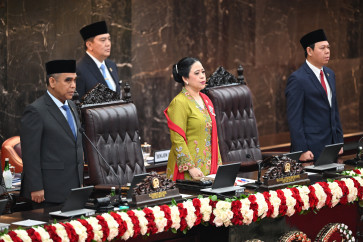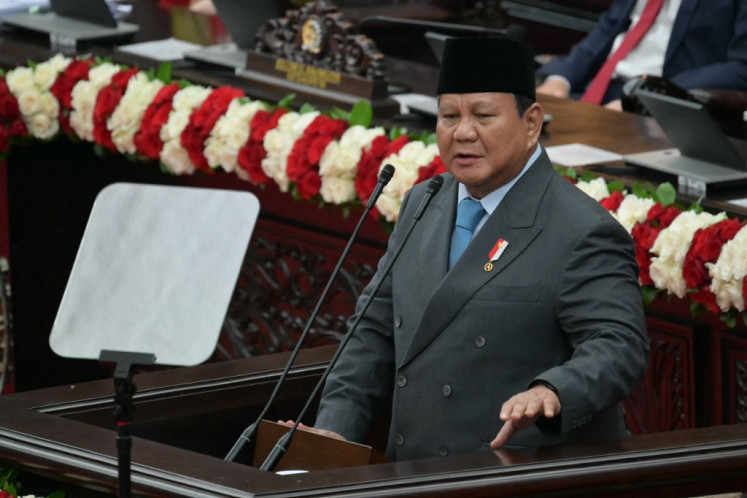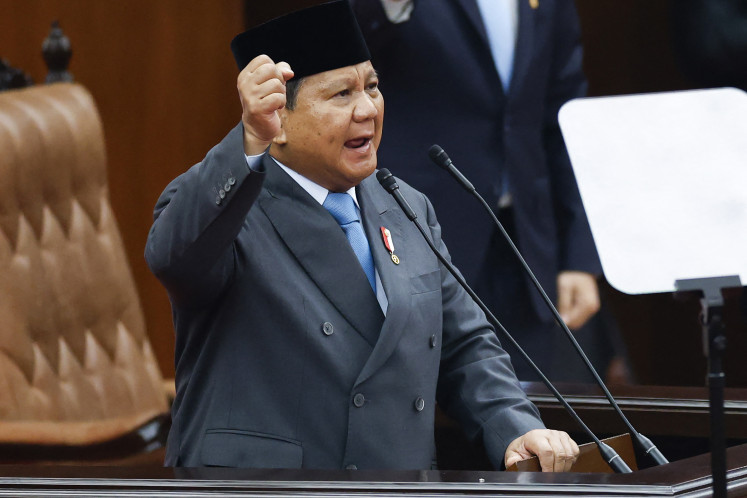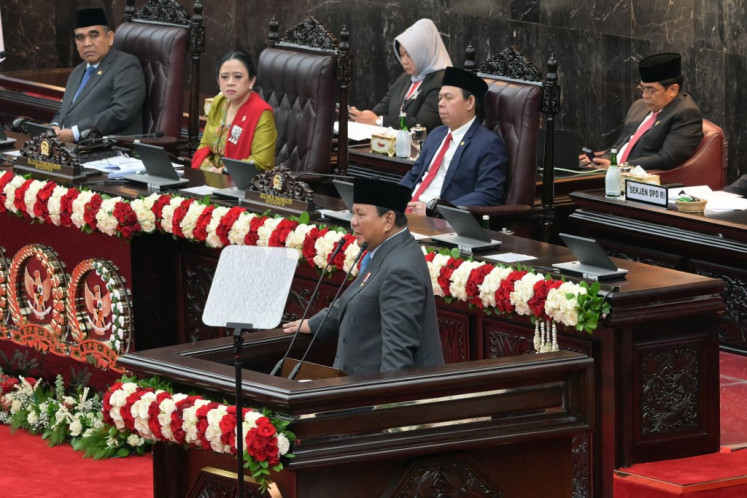Popular Reads
Top Results
Can't find what you're looking for?
View all search resultsPopular Reads
Top Results
Can't find what you're looking for?
View all search resultsTaking life from the forest in Punan Adiu
A visit to this village in North Kalimantan shows how people can embrace technology without neglecting the balance between life and nature
Change text size
Gift Premium Articles
to Anyone
A visit to this village in North Kalimantan shows how people can embrace technology without neglecting the balance between life and nature.
Getting to the village, which is located in the middle of the forest in the Malinau regency, is no easy task.
First, visitors need to take a one-and-a-half-hour plane ride from Balikpapan, East Kalimantan, to Tarakan. From Tarakan, visitors need to take another plane ride for about 30 minutes to Malinau airport, which can only serve small and cargo planes.
Finally, visitors can reach the village using land routes from Malinau.
The road trip to the village could take between two and three hours on a good day. On a rainy day, it could take longer.
A bright green wooden church will greet anyone who is finally able to access the village.
The church signifies the importance of Christianity for the Punan in the village. The tribe is one of the many subtribes of the Dayak, who encountered Catholic missionaries in the early 20th century and have since converted to Christianity.
Life in the village could not be more peaceful.
The residents, who comprise around 200 individuals living in around 30 households, get almost everything they need from the nearby forest and rivers.
Church: The residents of Punan Adiu, a subgroup of the Dayak, converted to Christianity in the early 20th century.
The men go hunting or fishing each day and they use wood from the forest to build houses. The wood that they use is high-quality gaharu wood, which can be sold for hundreds of millions of rupiah per kilogram on the open market.
The abundance of luxurious and high quality commodities surrounding the village will make visitors from a much more 'advanced' society question and redefine the meaning of luxury.
In Punan Adiu, people might not use smartphones and the Internet, yet they are living the dreams of most workers in the big cities: to be able to wake up in front of beautiful scenery every morning and to have fresh, delicious and nutritious food served on the table every day.
Many people in big cities pay big money to stay fit and healthy in gyms, but in Punan Adiu, being lean and ripped comes naturally from a young age.
This is because the children spend their days playing not with gadgets but with their peers doing various sports activities, such as diving and swimming in the nearby rivers or playing soccer on a green pasture dedicated specially to the sports.
None of the villagers suffer from or show any potential for obesity. The daily sports they do are combined with a healthy diet that consists of all-natural complex carbohydrates and healthy proteins that they can easily obtain from their own backyards.
On the map: The people in Punan Adiu are mapping their tribal lands with the help of two NGOs.
Despite of the simplicity of life, the residents also show their willingness to adapt to modernity in their daily lives.
Kids have embraced pop culture by wearing English Premier League club replica kits. The teenagers are proficient in riding motorcycles or cars for transportation and to help their elders in selling commodities to the outside world.
In addition, people in the village also use diesel-powered generators to light up the streets and their houses.
Residents are friendly to and accepting of guests, who are greeted with a special ceremony in which they are adopted as one of the village's children by the elders and given a chance to sip on a fermented tea drink.
At the same time, adaptation to technology and acceptance of outsiders does not make residents forget about the importance of keeping a good balance with the natural world that surrounds them.
This mind-set comes with a good reason, as their balanced life is threatened by mining and plantation operations in Kalimantan. In 2006, Malinau regency issued a policy to open around 1 million hectares of forest for mining and plantation operations.
The central government is planning to issue a law that would protect the rights of indigenous people and require them to map tribal areas so that they can be acknowledged by the state.
The Punan have so far shown a progressive nature by mapping their tribal forest and areas with the help of two NGOs, the Participative Mapping Service Network and the Punan Institute of Rural Coast and Societal Studies (LP3M).
'The map is an essential tool for the community here to claim its rights over the forest to the state,' Participative Mapping Service Network coordinator Ahmad Asyami said.
Mapping, which has been under way for three years, is currently in its final stage. It shows that the Punan tribal forest in Malinau covers around 17,400 ha.
Punan Adiu tribal head Markus Ilun said the map would be signed by leaders from nearby villages.
Markus is the embodiment of the wisdom of the Punan. While he can barely speak Indonesian with proper syntax, he understands that getting approval from other villages over the map is important to preserve their long-term future.
'I could easily sell the rights over the forest to a mining or a plantation corporation for billions but I will not do that because the forest gives us life,' Markus said.
' Photos by JP/Hans David Tampubolon












